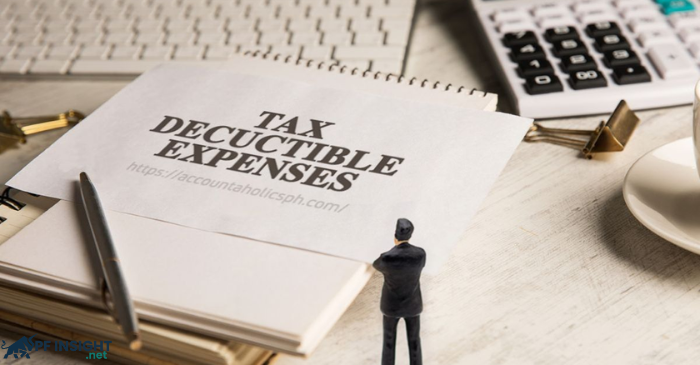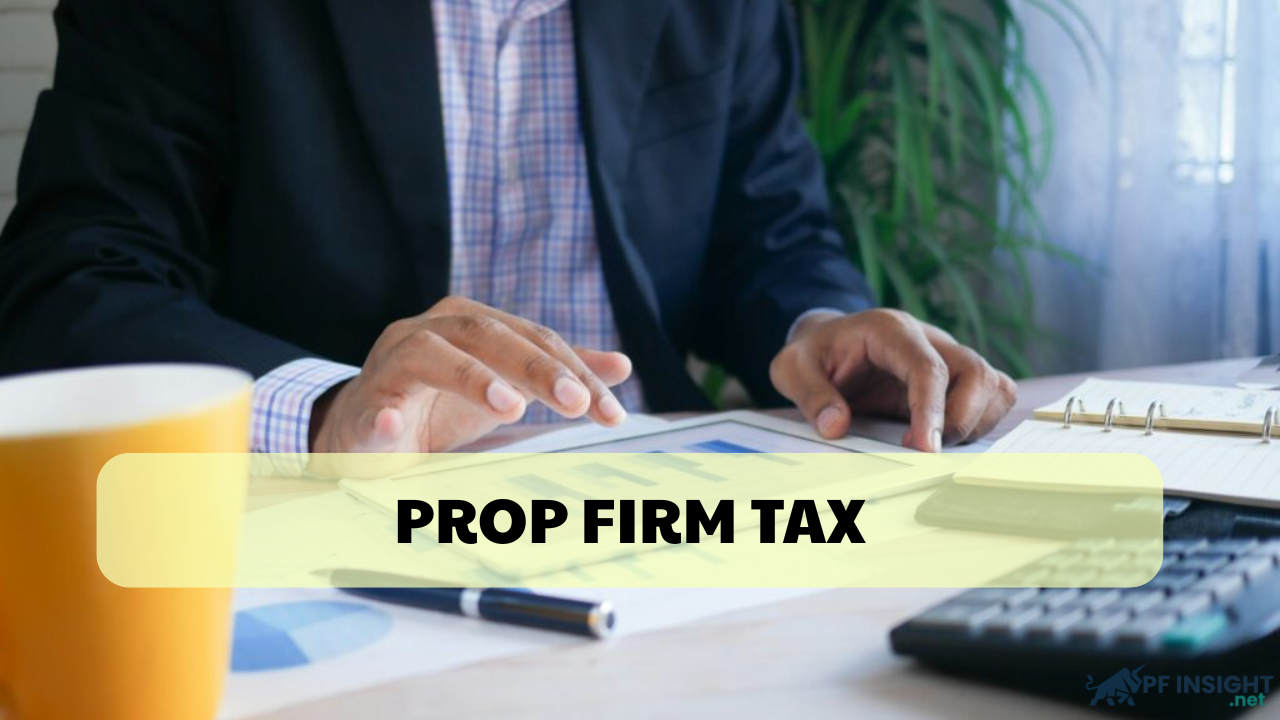What is Prop Firm tax? Prop Firm tax is a term used to describe the types of taxes that proprietary (prop) traders must pay before receiving their profits. As you may know, proprietary trading involves a profit-sharing investment model based on the capital provided by a Prop Firm. Therefore, the profits that traders receive are significantly affected by various factors, especially Prop Firm tax.
So, what exactly is Prop Firm tax? How does it affect the profits traders receive? And what tips do prop traders use to maximize their earnings? Let’s explore these questions with Pfinsight.net in today’s article.
What is Prop Firm tax?

The tax that proprietary traders must pay on the profits they earn through a proprietary trading company is called Prop Firm tax.
For example, with profit-sharing programs like WeMasterTrade, traders can keep up to 90% of their profits. However, this percentage does not include taxes – you are still required to report and pay taxes according to the laws of your country.
Understanding the tax landscape for proprietary traders
Proprietary trading is becoming increasingly popular, especially with the rise of remote proprietary trading firms. Traders who operate as LLC members or independent contractors through these firms often encounter unique tax situations.
As you may know, proprietary trading is considered a commercial activity. This means traders are not required to register a business or obtain any formal licenses to become funded traders. However, what traders must pay attention to is complying with tax laws.
Your prop trading tax liability

Here’s an example of how Prop Firm tax is calculated in the United States, which can help traders understand how self-employment tax works and how to maximize their profits.
Suppose your net monthly profit after expenses is $2,000. In this case, your monthly self-employment tax would be:
$2,000 × 15.3% = $306
However, income tax calculation can be more complex due to several factors, such as your annual earnings and eligible deductions.
For this example, let’s assume you fall under the 12% income tax bracket based on your taxable income. That means your monthly income tax would be approximately:
$2,000 × 12% = $240
Ideally, you should make quarterly estimated payments to cover both self-employment tax and income tax. Using the example above:
Quarterly payment = ($306 + $240) × 3 months = $1,638
This is a very basic illustration. Depending on your overall tax situation – including deductions, filing status, and additional income – your actual tax liability could be higher or lower.
For this reason, it is highly recommended to consult with a qualified tax professional to ensure accuracy and compliance.
Prop Firm tax across different countries
Prop Firm tax in Australia
If your proprietary trading profits are held for more than one year, they may be subject to Capital Gains tax (CGT). Conversely, if profits are held for a shorter period, they may be taxed as ordinary income.
Financial instruments being traded are exempt from Goods and Services tax (GST), but related costs such as brokerage fees may be subject to GST. Additionally, you may reduce your taxable income by deducting business-related expenses, such as data subscriptions and trading fees.
However, to calculate taxes accurately and claim deductions, you must keep complete and organized transaction records.
Prop Firm tax in Canada
In Canada, your profits are typically taxed as ordinary income rather than capital gains. Both federal and provincial income taxes apply, and each province has its own tax rates.
Canada uses a progressive tax system with multiple tax brackets. Each bracket has a different tax rate applied to your income.
Unlike traditional employment, you will not receive a tax slip from your proprietary trading firm as you would from a regular employer.
Therefore, Canadian traders must report their proprietary trading income to the Canada Revenue Agency (CRA) and pay taxes accordingly. It is advisable to work with tax professionals for proper guidance and compliance.
Prop Firm tax in New Zealand
In New Zealand, if you operate as a sole trader, profits from proprietary trading are added to your personal income and taxed at personal income tax rates.
If you set up a company, profits are taxed under the corporate tax rate.
Tax deductions and reporting obligations vary depending on your business structure. Generally, short-term and frequent trades are treated as business revenue, while long-term holdings may qualify for capital gains tax exemptions under certain conditions.
Prop Firm tax in the UK
In the United Kingdom, profits from asset sales are subject to Capital Gains tax (CGT). With an annual exemption threshold, the current CGT rates are:
- 10% for basic-rate taxpayers
- 20% for higher-rate and additional-rate taxpayers
Proprietary trading may also be taxed as income – at rates of up to 45% – if HMRC determines that you are operating as a business.
If you trade under a limited company, profits are subject to corporation tax, and tax rates vary depending on your income level.
Additionally, traders can deduct certain trading-related expenses, such as Forex trading fees, but they are required to declare their profits and revenue to HMRC.
Tax planning strategies for prop traders

Proprietary traders can maximize financial returns and minimize tax liabilities by adopting effective tax planning strategies. Here are some key approaches:
Choose the right business structure
Setting up a company can provide potential tax advantages, such as deferring taxes and benefiting from lower corporate tax rates. Consult with a tax professional to determine whether incorporating is the best option for your situation.
Leverage tax-deferred accounts
Where applicable, consider using tax-deferred investment accounts, such as Registered Retirement Savings Plans (RRSP). These accounts can provide tax advantages on growth and contributions.
Maximize home office deductions
If you trade from home, ensure you deduct a reasonable portion of home-related expenses, such as rent, utilities, and mortgage interest, based on the size of your dedicated office space.
Prepare for GST/HST obligations
If required, register for GST/HST and ensure timely filings. To properly claim input tax credits, maintain accurate records of GST/HST collected and paid.
Conclusion
Funded traders must comprehend Prop Firm tax in order to optimize their earnings and maintain tax compliance. Because tax laws vary from nation to nation, it’s critical to understand your responsibilities and make plans in advance. Traders may lessen their Prop Firm tax burden and concentrate more on increasing their trading earnings by implementing astute tax methods and consulting an expert.







